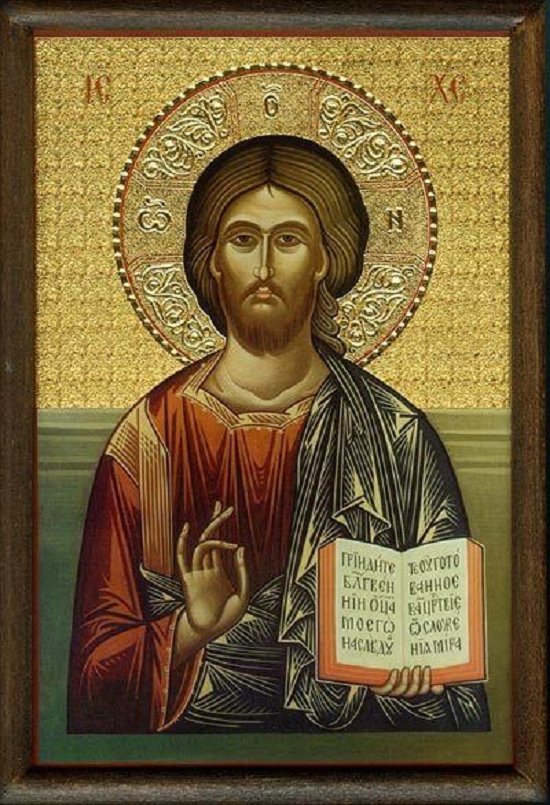Where Is Your God?
Fifth Sunday of Easter Scripture Readings

On first reading, you would think that this passage from John’s gospel is about heaven. In one sense, as I’ll explain, this is true. However, we know that when we read the mystical gospel, we have to be prepared for some seemingly obtuse sayings that can lead us to ever deeper and more profound understandings. The gospel passage set before us this morning is dense with such meanings. In it, we have revealed for us not only the relationship between Jesus and the Father, but also the relationships between Jesus and the Church, and the Church and the world. This morning, I want to explore those relationships.
The gospel text begins with a word of consolation. It came because Jesus had just revealed to the disciples in a previous passage that he was leaving them. They were distressed. In his consolation, Jesus asks them—and us—to have faith in God and faith in him. By doing so, Jesus equates the two, letting us know that God, the Father, and he are identical. To have faith in one is to have faith in the other. Then, he presents one of those obscure illusions. “In my Father’s house there are many dwelling places.” Throughout Christian history, the temptation has always been strong to anthropomorphize that image. People have imagined that somehow heaven is divided up into “mansions” like an upper-crust gated community, or “apartments” like a condo complex with some places bigger than others or in more desirable locations. We should leave these crude, and rather silly, imaginings behind.
Let’s begin with the Father’s “house.” What does the gospel mean by that? When the Hebrew Scriptures speak of God’s house, they’re almost always referring to the Temple—God’s dwelling place among his people. It’s the meeting place between God and humankind. The temple was also understood as a symbol of God’s unseen dwelling, which we call “heaven.” Yet, God cannot be confined to a place. In God, there is no “here” or “there.” Heaven is therefore no “place.” Heaven is the condition of life in relationship with God. Likewise, the Kingdom of God can’t be understood as a territory, but it is, rather, our participation in the Reign of God over all of creation.
So, when Jesus says, “In my Father’s house there are many dwelling places,” what he’s telling the disciples is that God’s presence cannot be confined to one place, one dwelling place, the Jerusalem Temple. His statement goes even beyond that. Remember that he’s telling his disciples that he is departing from them. He’s informing them that the relationship—the identity—between God and humankind can’t even be confined to Jesus himself. In his human person, Jesus cannot stay. He must ascend to the Father in glory. What that means is that by his death and resurrection, Jesus will have perfected his relationship with the Father so that we might be set free to become dwelling places of the Father in the Holy Spirit, just as he is. In glory, freed from the corruption of sin and death, he sends the Holy Spirit to us so that we, too, might become one with the Father.
In the Father’s house—in the Father’s relationship with the whole of his creation in space and time—there are many dwelling places. His dwelling place among the people of Israel in the Temple was superseded when God’s perfect dwelling place came among us as one of us in the person of Jesus. He is the “image of the unseen God” [Colossians 1:15] so that he could say to his disciples, “Whoever has seen me has seen the Father.” Yet, his life, death, and resurrection are but preludes to his glorification with the Father and his gift of his own Holy Spirit to us—to those who believe and trust in him.
Where are those many dwelling places that the gospel talks about? Look around you. They are walking, talking, living, breathing, loving, giving dwelling places of the Father. The Father’s dwelling place can never be confined to one building or even one body. The Father’s dwelling place is wherever his Holy Spirit is alive—in you, in me, and incarnate in all who believe and trust in God, and who live their faith in love and service to one another. Those “greater works” that we heard about in the gospel aren’t confined to the sorts of miracles—the “mighty deeds” that Jesus and his disciples performed. The “greater works” are the countless miracles of love and service performed everywhere throughout time by all those who’ve been transformed by the indwelling of the Holy Spirit of God. Those many dwelling places where the Power of God manifests itself in our world make up the Church with a capital “C,” the living Body of Christ.
If we are faithful to the gift of the Spirit of God that we have received, if we follow the example of love and selfless service that Jesus showed us, then each of us is a dwelling place in the Father’s house. We are the contact point between humanity and the unseen God. If we truly become the people we’ve been called to be, then, if someone were to ask us, “Where is your God?” our words and action should proclaim to them, “Have I been with you so long a time and you still do not know me? Whoever has seen me has seen the Father.”
Get articles from H. Les Brown delivered to your email inbox.
